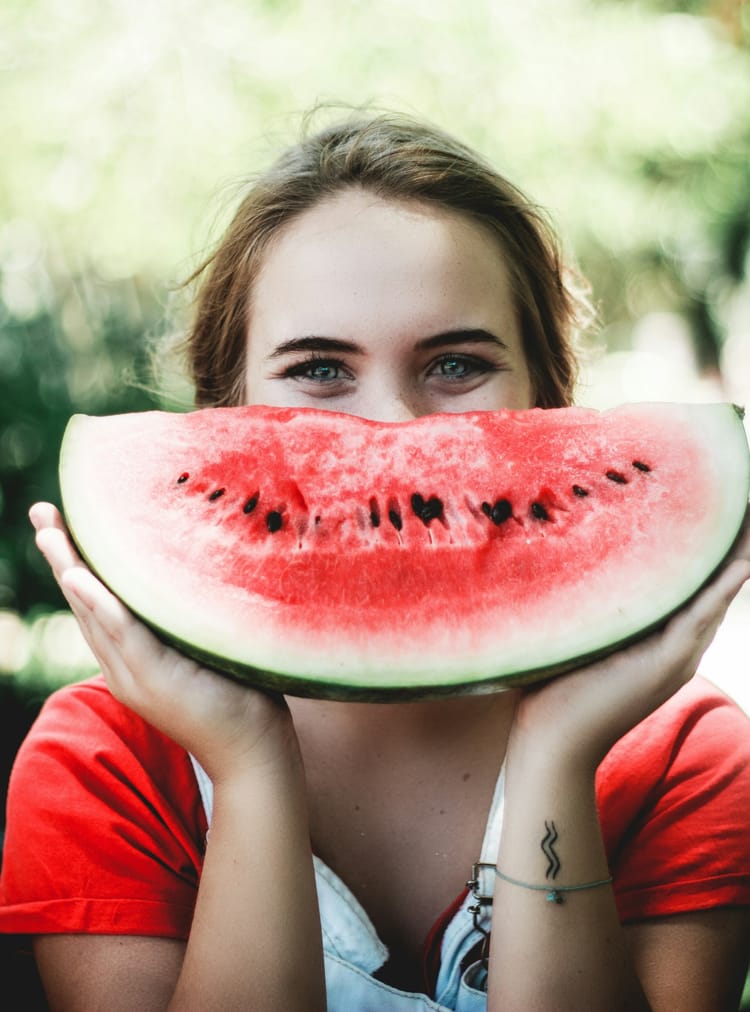Eat Your Way to Clear Skin: Foods to Improve Colon Health

Changing your diet will be an important step in making your face healthy, smooth, and free of acne. Learn which foods contribute to colon health.
Maintaining a healthy colon is vital for overall well-being, as this organ plays a crucial role in the body's digestive system and also on its largest organ – your skin.
By keeping your colon healthy, you can also enjoy other benefits such as improved skin health, helping to keep your complexion clear and acne-free.
This blog post will give you all the information to switch to the best colon-cleansing foods and a balanced diet to ensure your overall health.
The story behind the food-gut connection
While some dermatologists and doctors might overlook the link between diet and digestive health, including irregular bowel movements, toxic colon, and liver issues, and their relation to acne, it doesn't diminish the significance of your diet in managing acne breakouts.
One of the most effective ways to keep your colon healthy is by consuming colon-cleansing foods. These foods help to detoxify the colon and promote regular bowel movements, preventing the build-up of toxins and waste that can lead to inflammation throughout the body.
If we truly understood the impact of diet on the colon,we would likely have more success to get clear skin free of acne breakouts. Making wise food choices is essential to maintain a healthy colon, as a diet high in fiber and low in processed foods can support optimal colon function.
Dietary choices have a substantial impact on colon health, influencing factors like the risk of colon cancer or colorectal cancer. Research consistently highlights the crucial link between a healthy colon and dietary habits. Studies underscore that a diet rich in fiber, leafy vegetables, and low-fat dairy products contributes significantly to healthy colon and minimize the risk of colon cancer.
Diet Impacts Acne-Free Skin
In her book, Food And Healing (1986) Annemarie Colbin (Ph.D), points out,
"In a systems view of the body, input of all kinds relates to output of all kinds. Food, therefore, would have a definite relationship to matter pushed out through the skin. I am continually amazed that dermatologists persist in viewing the skin as merely a protective envelope for the body, ascribing its eruptions to 'viruses' and imprecise malfunctions and supporting the myth that 'diet has nothing to do with acne.'
While medical interventions might offer temporary relief, a holistic approach involving dietary changes is crucial for sustaining overall health including skin health.
A well-balanced diet can significantly contribute to preventing acne breakouts and supporting overall skin health. Incorporating specific food groups and nutrients into your daily meals can make a noticeable difference.
The connection between the two - colon health leading to skin health - works on the premise that everything to do with the nutrition your diet provides that supports colon health, leads to healthy skin.
The Role of Nutrition
Numerous medical experts, including nutritionists, health coaches and professionals in the field, emphasize the preventive aspect of a diet that supports colon health.
The following key dietary measures contribute to overall health and well-being and ultimately, aids in preventing colon cancer and other types of cancer.
Leafy Greens and Fiber-Rich Foods: Leafy vegetables are packed with vitamins and minerals that are beneficial for skin health. Foods rich in fiber, such as whole grains, legumes, and fruits, are known to aid in digestion and can contribute to clearer skin. Aim for at least 25 grams of fiber per day to keep your gut functioning optimally and your skin radiant.
Low-Fat Dairy and Bone Broth: Low-fat dairy products and bone broth are excellent sources of calcium and essential vitamins that support skin health. Bone broth, in particular, contains collagen and amino acids, aiding in skin repair and rejuvenation.
Variety in Your Diet: Eating a varied diet ensures you get a wide range of nutrients. This helps in maintaining a balanced digestive system, reducing the risk of skin issues like acne and managing conditions like Irritable Bowel Syndrome (IBS).
Building a Balanced Plate: Include side dishes high in fiber, like salads with mixed greens, whole grains, or beans. These can provide a multitude of vitamins and minerals that are beneficial for your skin.
By maintaining a diet rich in leafy greens, low-fat dairy, and foods high in fiber, you not only promote a healthy digestive system but also support clearer, acne-free skin.
Foods that Support Gut Health
Your gut health is essential for overall well-being, as the gut plays a crucial role in various bodily functions, such as digestion and immune system regulation.
Certain foods can help support gut health by reducing inflammation, promoting a healthy microbiome, and aiding in proper digestion. These are:
- Whole grains, such as oats, are rich in fiber and can help prevent constipation and keep the digestive system moving smoothly.
- Legumes, like beans and lentils, are also high in fiber and can aid in supporting a healthy gut.
- Eating certain foods have been shown to reduce inflammation and promote good bacteria in the gut, which supports overall gut health. It is therefore important to limit intake of red meat, as it has been linked to an increased risk of inflammation and may negatively impact gut health.
- Probiotic-rich foods, like sauerkraut and other fermented foods or fermented drinks like apple cider vinegar or kombucha tea, can help support a healthy balance of bacteria in the gut and promote optimal digestive function.
- Eating dairy products, such as yogurt, can help support the intestine by providing a source of probiotics and aid in regular bowel movements.
Overall, a diet rich in whole grains, legumes, probiotic foods, and apple cider vinegar can help support gut health by reducing inflammation, promoting a healthy microbiome, and aiding in proper digestion.

Product Review
We have some great products for you!
Are you looking for natural ways to fastrack and improve your digestive health? Look no further! In this product review, we will discuss the benefits of colon-cleansing foods and drinks so you can make an informed decision about incorporating them into your lifestyle.
How we chose the products
We have selected this list of products that has natural properties and ability to promote a healthy digestive system. These products would be a great addition to your daily routine. Whether you are looking to improve your overall well-being or simply want to incorporate more natural options into your diet, colon-cleansing foods and drinks are a great choice.
So sit back, relax, and let us guide you through the world of natural colon-cleansing options.
This post includes affiliate links. If you choose to purchase through one of my links, I'd like to thank you for your support! I'm potentially able to get a small commission, with no extra charges for you. To learn more, please check out the full disclosure with all the details.
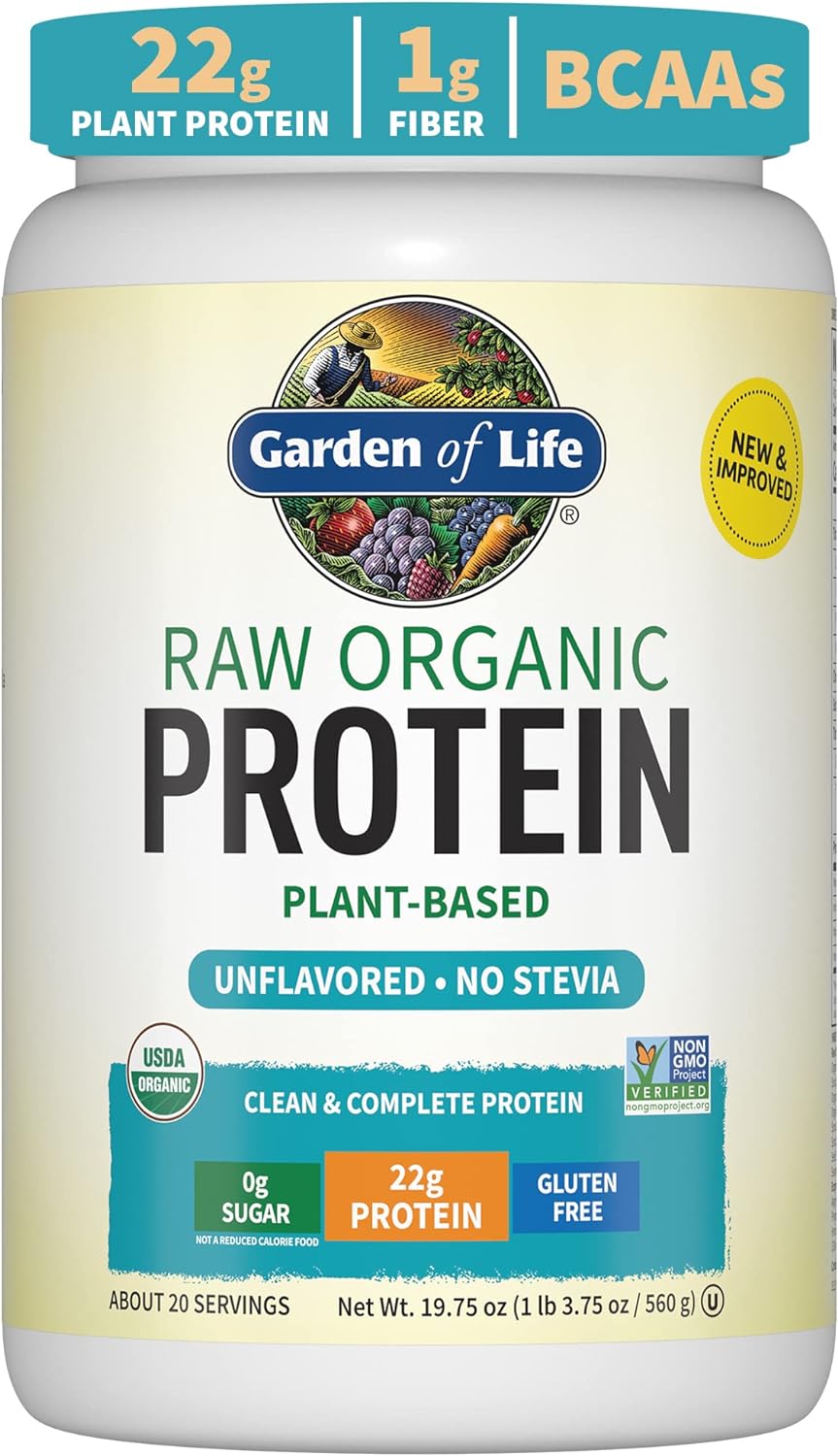
Garden of Life Organic Vegan Unflavored Protein Powder 22g
Complete Plant Based Raw Protein & BCAAs Plus Probiotics & Digestive Enzymes for Easy Digestion, Non-GMO Gluten-Free Lactose Free 1.2 LB
Why we love it
Boost your protein intake with 22g of complete plant-based protein, ideal for vegetarians seeking muscle recovery. With a full branched chain amino acid profile and 1g of fiber, it aids satiety at just 120 calories per serving. Plus, it's incredibly delicious—no chalky textures here! Whether blended into smoothies, mixed with water, or added to baked goods, Raw Organic Protein Unflavored protein offers a smooth, tasty experience.
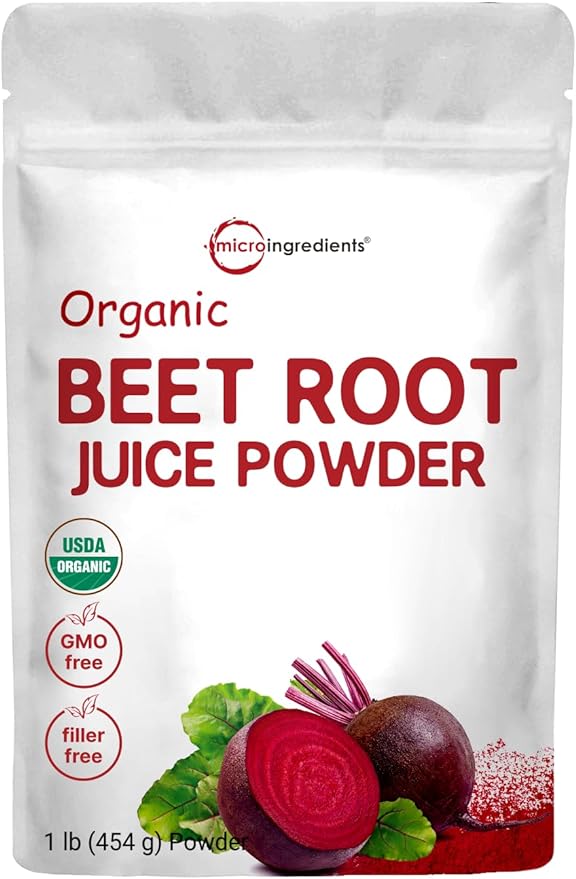
Micro Ingredients Organic Beet Root Juice Powder
Superfood Drink Mix by Micro Ingredients. Organic beet root juice powder, 1 pound raw bulk supply, easily absorbed water-soluble nutrients, cold pressed to retain full nutrient-dense profile, natural vegan-friendly ingredients.
Why we love it
Indulge in a pound of vibrant beetroot juice powder, each scoop offering about 3.5 grams—equivalent to up to 129 servings. It's raw and active superfood properties remain intact without the need for heat, ensuring a fresh and potent flavor. This premium supplement is GMO-free, non-irradiated, and crafted without any additives, preservatives, soy, gluten, or artificial ingredients. Use it to elevate beverages, sauces, baked goods, or smoothies with its natural and healthy beetroot essence.
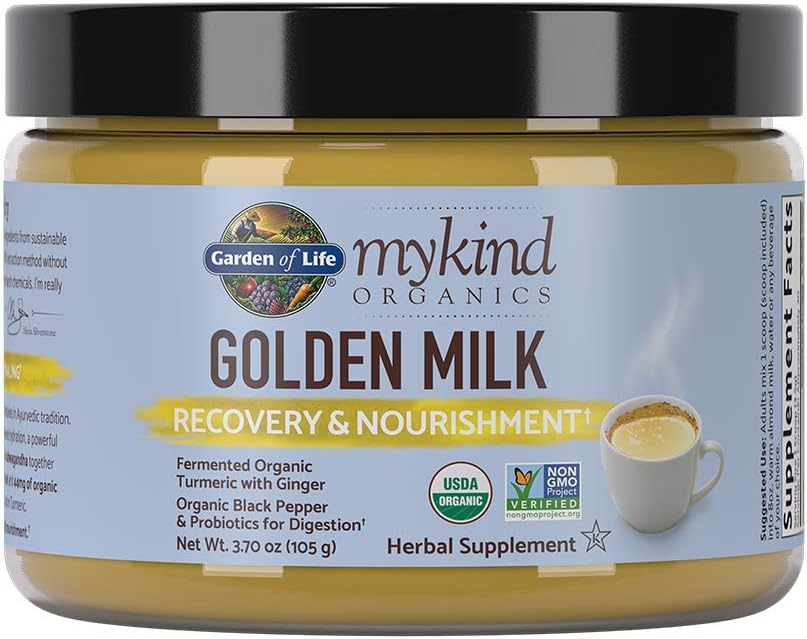
Garden of Life mykind Organics Golden Milk Recovery & Nourishment Powder
Turmeric Curcumin (95% Curcuminoids), Ashwagandha - Organic Non-GMO Vegan & Gluten Free Herbal Supplements, 30 Servings
Why we love it
Have you heard about the amazing Golden Milk? It's been a popular beverage in Ayurvedic tradition for centuries! Golden Milk Turmeric Powder is a fantastic blend of organic fermented turmeric root, packed with 44 mg of curcumin, along with ginger, black pepper, and Ashwagandha. It's a powerful combination!
And that's not all - it also has added coconut water to make it even more hydrating and probiotics for better digestion. What's not to love?
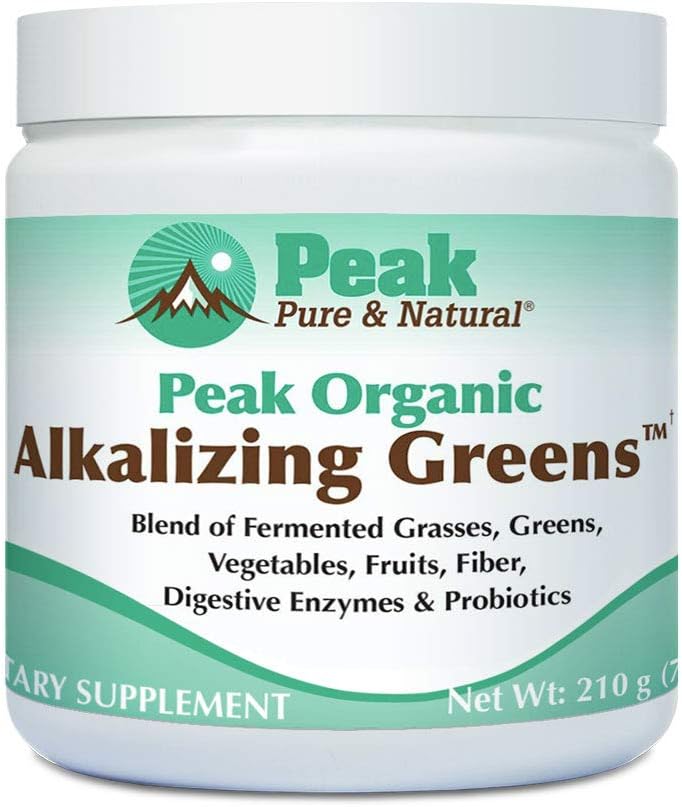
Peak Pure & Natural Peak Organic Alkalizing Greens Support pH Balance and Alkalinity
Superfood Green Drink Powder | Blend of Fermented Grass, Vegetable, & Fruit | Digestive Enzyme & Probiotic Powder.
Why we love it
Introducing this natural, amazing probiotic powder that's packed with digestive enzymes and a powerful probiotic fiber blend! An organic antioxidant and alkalizing spice blend that is a powerhouse mix of fermented alkaline ingredients like barley grass powder, alfalfa powder, wheatgrass, and spirulina powder. It tastes delicious and includes greens like kale, carrot, parsley, broccoli, spinach, apple, blueberry, and black currant. This superfood health drink not only promotes a healthy gut flora and intestinal health, but it also helps your body maintain a healthy pH balance.
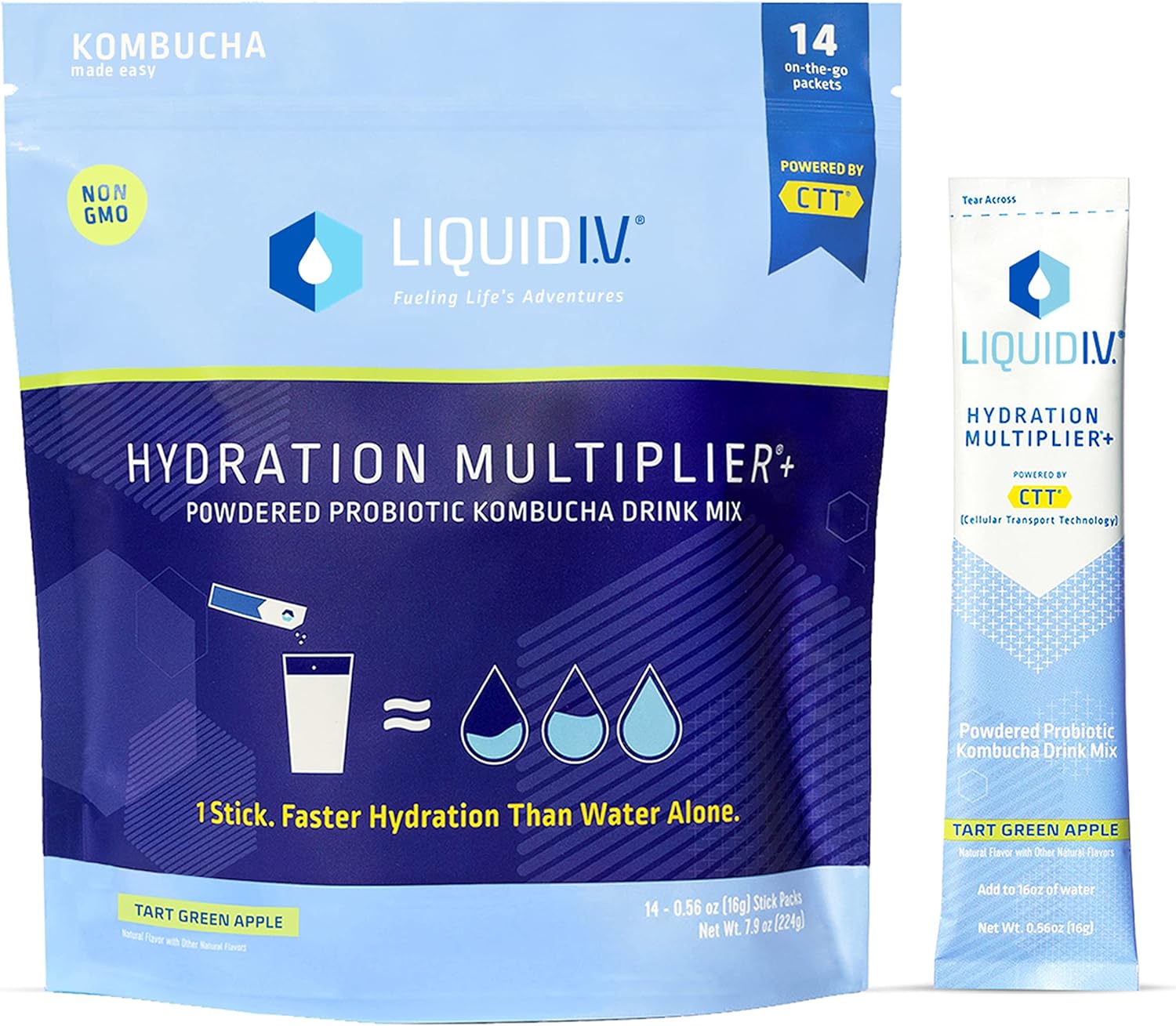
Liquid I.V. Hydration Multiplier
Probiotic Kombucha - Tart Green Apple - Hydration Powder Packets | Electrolyte Drink Mix. Easy Open Single-Serving Stick | Non-GMO | 14 Sticks.
Why we love it
We've got an amazing kombucha drink mix for you from Liquid I.V., that's bursting with the refreshing taste of tart green apple. But that's not all - this is a special hydration formula, along with 1 Billion CFUs of Probiotic BC30 and Double Fermented Tea Vinegar Powder. Trust us, this kombucha is like nothing you've ever tried before - it's crisp, balanced, and absolutely delicious.
Liquid I.V., carefully crafted the perfect blend of ingredients to ensure rapid absorption into your body. This means you'll not only stay hydrated, but also get the maximum benefits from the key ingredients. So, say goodbye to dehydration and hello to better hydration!
9 Foods to Stop Eating
Start today!
If you smoke, drink alcohol or drink coffee, then this program will not work too well for you. When you have these addictions, your body's minerals and vitamins will be out of balance and it will be difficult for you to achieve any state of good health.
So, here are they foods that you need to stop eating. But, you don't need to stop eating these foods instantly. Not many people can do this off the bat. You need to do this gradually for your behaviour to change over time as you see the benefits in how you can live a better, healthier life.
I know it will be hard to stop eating some of these foods that you have enjoyed, over the years, but you have to ask yourself the question,
"Which do I want to be… Acne free and healthy, or a junk food addict?"
The choice is yours and I know you will make the right decision so here is the list. Once your remove these foods from your diet, you should experience lower cholesterol, lowered overall inflammation in your gut, reduced blood pressure, and enhanced brain health. All of which results contribute significantly to overall well-being.
- White Bread - This is considered junk food since it is void of any vitality for your body. It is hard to digest and causes constipation.
- Chocolate - some chocolates are better than others. Those that have saturated fats such milk, butter and sugars are not good for your health.
- Fried fatty foods - fried foods, butter, hard cheeses, beef, the list goes on and on in modern-day diets.
- Fast Foods - All foods from fast food chains are often considered to be, "junk food", and you pay a price for the pleasure of instant gratification. They are considered to be of very little nutritional value to your body. They deplete minerals, vitamins, and digestive enzymes during digestion. They also contain very little to no fiber so they cause constipation.
- Foods with artificial flavors and preservatives - These are non-foods that are super toxic. Your body does not know what to do with them so it stores them as toxic waste.
- Milk, ice cream, hard cheeses - these foods cause allergies and cause mucus to form. This mucus coats the colon and other internal surfaces and interferes with the function of that area. Bacteria and other pathogens enjoy living in the mucus film. This mucus also tries to escape through the face when you have too much of it in the body. If you cannot digest dairy products, they result in inflammation and acne.
- Sodas are the worst drink you can take. They contain plenty of sugar and phosphoric acid which is super toxic.
- Salt - avoid salt only because it has iodine. Iodine has been shown to cause acne.
- Avoid Excess Vitamin B12 in supplements - fish, meat, poultry, eggs, and dairy products is packed with this vitamin, which in overdose levels, can aggravate or produce acne.
- Sugar is considered a white poison. It creates so many health problems in the body according to multiple research conducted. The Centre for Disease Control published that,
"Americans are eating and drinking too many added sugars, which can contribute to health problems such as weight gain and obesity, type 2 diabetes, and heart disease. To live healthier, longer lives, most Americans need to move more and eat better, including consuming fewer added sugars."
Various health systems within your body are intricately interconnected. Therefore, it's no wonder that many foods deemed non-beneficial for colon health also feature prominently in lists of foods aiding other diseases.
There you have it. It takes a lot of will power and desire to change your diet. It can be done but do it slowly. Start changing your diet and see where you're at in 6 months.
Get Help from a Health Coach
Feature Article
Health coaches play a vital role in guiding individuals toward optimal colon health through personalized strategies. They provide invaluable insights into colon cleansing foods, aiding in food choices that promote a healthy gut.
These professionals emphasize the significance of incorporating fiber-rich foods, leafy vegetables, and low-fat dairy into daily diets, as recommended by the American Institute for Cancer Research, to reduce the risk of colon cancer.
Moreover, health coaches focus on reducing inflammation throughout the body by promoting dietary habits that limit processed foods and emphasize whole, nutrient-dense options.
By offering guidance and tailored plans, they assist in making sustainable dietary changes, ensuring individuals adopt healthier eating habits beneficial for colon health and overall well-being.
Their expertise extends beyond mere dietary advice; they serve as a support system, providing motivation and encouragement throughout the journey toward a healthier lifestyle and reduced risk of colon-related health issues.
FAQs
We answer your questions
Which vitamin is bad for acne?
Vitamins B6 and B12 might not be the best choice for acne-prone skin.
Taking high doses of these vitamins (more than 5 mg to 10 mg per week) has been found to potentially trigger acne breakouts or make existing acne worse.
Does what you eat really determine your health?
It's true! When we consume too much food or choose the wrong types of food, it can lead to problems like weight gain, malnutrition, and the risk of developing diseases like arthritis, diabetes, and heart disease. In other words, what we put into our bodies plays a central role in our overall well-being.
Does some dietary supplements trigger acne?
Yes, there are acne-inducing supplements. For example:
- Whey protein powders.
- Muscle building supplements (because they can be contaminated with androgenic steroids)
- Vitamin B6 supplements (high-dose)
- Vitamin B12 supplements (high-dose)
- Iodine or seaweed supplements.
What is the difference between organic protein and whey protein?
Organic protein comes from organic sources that haven't been treated with any synthetic pesticides, herbicides, or fertilizers. It's a great option if you prefer to go natural. On the other hand, whey protein is a type of dairy protein that is actually a by-product of cheese production. It's extracted from milk using a process called ultrafiltration and then dried to form powder.
Sources
- Colbin, Annemarie. 1986. Food and Healing: How What You Eat Determines Your Health, Your Well-Being, and the Quality of Your Life. Ballantine Books.
- Centers for Disease Control and Prevent. Get the Facts: Added Sugars https://www.cdc.gov/nutrition/data-statistics/added-sugars.html#:~:text=Americans%20are%20eating%20and%20drinking,including%20consuming%20fewer%20added%20sugars. Accessed 18/11/2023
Last Thoughts
Your body's health systems are all interconnected in a fascinating way. That's why it's not surprising to see that many foods which are not good for your colon health also show up on lists of foods that can contribute to other diseases, including breakouts on the skin.
So, here's the thing: changing your diet requires a lot of determination and motivation. But don't worry, you don't have to do it all at once. Take it slow and make gradual changes. Start by incorporating healthier options into your meals and see how you feel after six months. You've got this!




